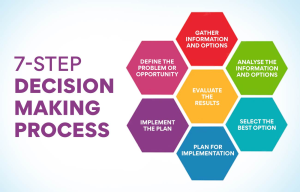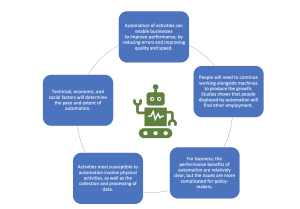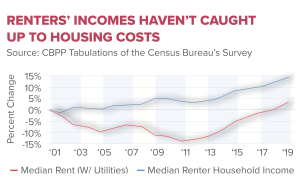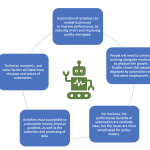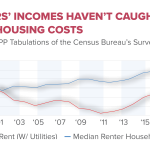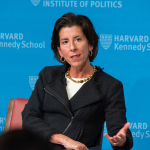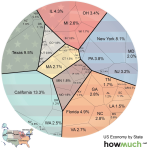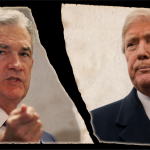Wealth inequality has emerged as one of the defining issues of our time, exposing the stark divide between the rich and the poor in societies around the globe. This phenomenon can significantly influence economic justice, as the concentration of wealth in the hands of a few billionaires exacerbates the plight of those at the bottom of the economic ladder. While some proponents argue that the super-rich play a vital role in combating income inequality through philanthropy, skeptics highlight the adverse impacts of their wealth on society and the environment. The ongoing debate about the redistribution of wealth challenges us to consider whether the current economic structures serve the greater good or primarily benefit the elite. As discussions around billionaires and society unfold, it becomes increasingly essential to explore innovative solutions to bridge this growing gap that threatens social cohesion.
The disparity in wealth distribution today raises urgent questions about equity and fairness in our economic systems. Terms such as financial disparity, economic imbalance, and resource allocation issues reflect the complexities of income inequality and its effects on community well-being. As we delve into the implications of wealth hoarding versus shared prosperity, discussions about philanthropy impact and the role of society’s wealthiest individuals come to the forefront. The need for a reevaluation of current policies aiming for a more equitable distribution of resources is pressing, and it paves the way for dialogue on economic justice and potential reforms. Ultimately, asking what it means to create a fair system for all voices leads us toward innovative approaches to wealth management and societal welfare.
The Impact of Wealth Inequality on Society
Wealth inequality has become a defining characteristic of modern economies, leading to significant disparities in the quality of life and opportunities available to different social classes. As the rich continue to accumulate wealth, their influence on political systems and social structures grows, often perpetuating cycles of poverty for lower-income individuals. This phenomenon raises critical questions about economic justice and the moral responsibilities of the affluent towards their less fortunate peers. By analyzing the effects of wealth distribution, we uncover the systemic imbalances that perpetuate income inequality and hinder social mobility.
Moreover, conversations surrounding wealth inequality often include discussions about the ethical implications of philanthropy. While billionaires may contribute to charitable causes, these efforts sometimes serve to mask the deeper issues related to economic disparity. For instance, while substantial donations to anti-poverty initiatives can provide temporary relief, they do not address the underlying causes of inequality, such as wage stagnation for low-income workers and barriers to education. Ultimately, without a concerted effort to redistribute wealth and empower disadvantaged communities, philanthropy alone cannot create sustainable solutions.
Philanthropy and Its Role in Addressing Income Inequality
Philanthropy has long been heralded as a noble pursuit, particularly by the wealthy who wish to leave a positive impact on society. However, the role of philanthropy in addressing income inequality has come under scrutiny. Critics argue that charitable giving cannot substitute for systemic change, as it often reflects the preferences and interests of the donors rather than the real needs of the communities they aim to serve. This dynamic creates a dichotomy wherein philanthropic contributions are potentially used to reinforce existing power structures rather than fundamentally challenge them.
Furthermore, while billionaires like Bill Gates champion global health initiatives through their foundations, it is essential to question the motivations behind such philanthropy. Are these efforts genuinely aimed at promoting economic justice, or are they driven by a desire to maintain influence and control over the narrative regarding wealth creation and distribution? Ensuring that philanthropic initiatives are aligned with the broader goals of equity and justice is crucial in transforming society and addressing the root causes of income inequality.
Redistribution of Wealth: Is it a Viable Solution?
The concept of wealth redistribution has been a contentious topic in economic discussions, particularly amid rising income inequality. Proponents argue that redistributing wealth from the affluent to the impoverished can lead to a more equitable society, providing crucial resources for education, healthcare, and housing. This approach seeks to level the playing field, so individuals from disadvantaged backgrounds can access opportunities that were previously out of reach. By raising taxes on the wealthy and directing those funds toward social programs, the state can play a pivotal role in addressing income disparities.
However, critics of wealth redistribution often cite the potential adverse effects on economic growth and innovation. They argue that excessive taxation could discourage investment and entrepreneurship, leading to a downturn in overall economic performance. This perspective emphasizes the importance of creating an environment where individuals are incentivized to succeed while simultaneously advocating for fair wages and conditions for all workers. Balancing the need for wealth redistribution with the dangers of stifling economic potential is crucial for policymakers aiming for sustainable solutions.
Billionaires and Their Influence on Economic Justice
The existence of billionaires raises complex questions about their impact on economic justice. On one hand, their wealth allows them to influence markets and create jobs, thereby contributing to societal progress. On the other hand, extreme concentrations of wealth can lead to disproportionate political power, often resulting in policy decisions that favor affluent individuals at the expense of the broader population. This duality presents a challenge in evaluating the net benefit of billionaires’ presence in society, particularly as income gaps widen.
Moreover, the actions of billionaires can have far-reaching consequences on social fabric and democratic processes. Instances of philanthropy may mitigate some immediate concerns, but they do not address the systemic roots of inequality that persist within economic structures. Creating a society that values and prioritizes genuine economic justice requires a collective reckoning with the influence wielded by the super-rich, particularly in shaping legislation that governs wealth distribution and labor rights.
Exploring Alternatives to Income Inequality
While discussions around income inequality often center on taxation and welfare policies, alternative approaches and systems can also play a significant role in creating a more equitable society. One proposed model is the concept of property-owning democracy, which emphasizes the importance of widespread property ownership as essential for economic fairness. This system encourages individuals to accumulate assets, directly contributing to wealth creation and reducing dependency on wage labor, thus paving the way for a healthier distribution of resources.
Implementing such alternative systems would require substantial changes to current economic frameworks and a rethinking of societal values regarding wealth. Allowing for equitable access to capital and resources could foster innovation and competition while simultaneously diminishing wealth disparities. By combining principles of market exchange with mechanisms for equitable property distribution, policymakers can explore solutions that promote economic inclusion and challenge entrenched income inequality.
The Role of Education in Addressing Wealth Inequality
Education is a pivotal factor in breaking the cycle of poverty and addressing wealth inequality. By providing access to quality education, individuals acquire the skills needed to secure well-paying jobs and become productive members of society. Education not only empowers individuals but also uplifts entire communities, creating opportunities for economic advancement. However, disparities in educational resources often reflect broader societal inequalities, whereby lower-income families face obstacles in accessing quality education.
To combat wealth inequality effectively, it is essential to invest in educational initiatives that cater to marginalized groups. This includes funding for schools in low-income areas, scholarships for underserved populations, and targeting academic support to promote success among disadvantaged students. By investing in education strategically, society can create a more level playing field and foster upward mobility, ultimately contributing to a reduction in income inequality over time.
Voices of Dissent: Perspectives on Redistribution
While many advocate for wealth redistribution as a solution to income inequality, dissenting voices argue that such measures may inadvertently exacerbate societal divides. Critics posit that redistribution can demotivate individuals from achieving their potential, fostering a culture of dependency rather than empowerment. By debating these perspectives, we can better understand the complexities of wealth redistribution and the potential consequences of implementing such policies without considering their broader implications on society.
This dissent highlights the need for a nuanced approach to wealth inequality, one that includes diverse perspectives and addresses the concerns of both proponents and critics of redistribution. Discussions surrounding economic justice should encompass various strategies, from taxation reforms to innovative social programs, ensuring that solutions are tailored to address the unique challenges of different communities. Engaging in these conversations can promote a more inclusive discourse on wealth inequality and help guide policymakers towards equitable outcomes.
Global Perspectives on Income Inequality and Wealth Distribution
Globally, income inequality manifests in various forms, influenced by cultural, economic, and political contexts. Countries with robust social safety nets and comprehensive public services tend to exhibit less pronounced wealth disparities. In contrast, nations that prioritize laissez-faire economic policies often struggle with extreme income gaps, highlighting the importance of examining how different systems impact wealth distribution and social welfare. Creating dialogues about successful models can provide insights into potential solutions for countries grappling with significant wealth inequality.
Understanding global perspectives also means recognizing the interconnectedness of economies. Wealth inequality in one nation can have repercussions worldwide, especially in an era of globalization where capital flows freely. Cooperation between nations can foster a more equitable distribution of resources and opportunities. By learning from both successful examples and challenges faced across the globe, policymakers can devise strategies to address income inequality that account for the intricacies of a globalized economy.
The Ethical Dilemma of Wealth Accumulation
The ethical implications of wealth accumulation often spark intense debate about the responsibilities of the wealthy. While some argue that amassing wealth is a personal triumph and reflects merit and hard work, others contend that extreme wealth concentrations reflect systemic injustices and come with an ethical obligation to give back to society. This tension illustrates the complex moral landscape surrounding income inequality, prompting questions about what it means to be just in a world where a few wield significant resources.
Engaging with these ethical dilemmas can guide a more profound understanding of wealth’s role in contemporary society. When discussing wealth accumulation, it becomes vital to consider not only the individual’s right to prosper but also the societal implications of such disparities. By promoting open dialogues that address these ethical concerns, we can work towards solutions that foster both personal success and collective well-being.
Frequently Asked Questions
What are the primary causes of wealth inequality in modern economies?
Wealth inequality arises from various factors, including the concentration of capital, differences in wages, inheritance, and market dynamics. Income inequality contributes significantly to wealth disparities, as high earners accumulate wealth more quickly and often invest it for further growth. Additionally, systemic issues such as access to education, healthcare, and opportunities exacerbate this inequality, often leaving low-income individuals further behind.
How does philanthropy impact wealth inequality?
Philanthropy can both mitigate and reinforce wealth inequality. While charitable donations from billionaires may support critical social initiatives, they can also prioritize donor preferences over systemic solutions. The impact of philanthropy on wealth inequality is complex, as it can lead to targeted aid, improving conditions for some, while failing to address root causes of broader economic disparities and redistribution of wealth.
What are the arguments for and against the redistribution of wealth?
Proponents of wealth redistribution argue that it is essential for achieving economic justice, reducing income inequality, and improving societal welfare. They believe in reallocating resources to support social programs that benefit the disadvantaged. Conversely, opponents argue that redistribution can stifle economic growth and innovation, suggesting that it may disincentivize hard work and entrepreneurship, highlighting the need for a balanced approach.
How do billionaires affect society in terms of economic justice?
Billionaires can produce both positive and negative societal impacts. On one hand, their wealth allows for substantial investments in social projects and job creation, potentially reducing poverty. On the other hand, the disproportionate influence of wealthy individuals can undermine democratic processes and contribute to wealth inequality, as they may pursue policies that favor their interests over those of the broader population.
What role does income inequality play in societal unrest?
Income inequality is a significant factor in societal unrest, as disparities in wealth can lead to feelings of disenfranchisement and resentment among lower-income individuals. When large segments of the population experience economic hardship while a wealthy few thrive, social tensions can rise, leading to protests and demands for reform. Addressing income inequality is thus crucial for maintaining social stability and economic justice.
Can market economies effectively reduce wealth inequality?
Market economies can reduce wealth inequality through mechanisms that foster competition, innovation, and growth. However, if left unchecked, market outcomes can also exacerbate disparities. The effectiveness of market economies in addressing wealth inequality often depends on the implementation of supportive policies, such as tax systems that promote fairness, labor rights protections, and investment in public services that can uplift disadvantaged communities.
What are the potential benefits of implementing policies aimed at wealth redistribution?
Implementing wealth redistribution policies can lead to a more equitable society by providing essential services and support to disadvantaged populations, thus improving overall quality of life. Such policies can enhance economic stability by creating a more balanced distribution of resources, stimulating demand through increased purchasing power among lower-income groups, and ultimately fostering economic growth.
How do educational opportunities influence wealth inequality?
Educational opportunities play a critical role in addressing wealth inequality. Access to quality education can empower individuals to secure high-paying jobs, break cycles of poverty, and create opportunities for upward mobility. Conversely, systemic barriers to education can perpetuate wealth disparities, as those from lower-income backgrounds may lack access to resources that support academic success and career advancement.
What is the relationship between billionaires and economic growth?
The relationship between billionaires and economic growth is multifaceted. Some argue that billionaires drive innovation and job creation, contributing to overall economic expansion. However, critics point out that this concentration of wealth can lead to economic inequalities and limit opportunities for others. Ensuring that the benefits of economic growth are more equitably shared is crucial for sustainable progress and addressing wealth inequality.
How can societies effectively address wealth inequality and promote economic justice?
Addressing wealth inequality requires a multifaceted approach that includes policies such as progressive taxation, investments in social services, improvements in access to education and healthcare, and support for workers’ rights. Promoting economic justice entails creating systems that ensure equitable opportunities for all members of society, pushing for systemic changes that address the root causes of inequality.
| Key Points | Summary |
|---|---|
| Panelists debated the impact of extreme wealth on society, particularly focusing on billionaires and wealth inequality. | The discussion included contrasting views on the benefits and harms of billionaires to the global poor. |
| Arguments were made for both the positive contributions of billionaires to investments in clean energy and anti-poverty initiatives, as well as the negative consequences of severe wealth concentration. | The panelists discussed mechanisms for redistributing wealth, like taxation, and whether these effectively improve conditions for the poor. |
| The influence of corporate practices on low-wage workers, highlighted through discussions about companies like Walmart. | Alternative socio-economic systems, including democratic socialism and property-owning democracy were proposed to address inequality. |
| The overarching theme of the event was centered around finding just systems that can accommodate extreme wealth while also ensuring basic standards of living for all. | The final sentiment expressed was the importance of innovative solutions to systemic poverty. |
Summary
Wealth inequality is a pressing issue that affects societies worldwide, and recent debates have brought to light various perspectives on the implications of extreme wealth. Panelists discussed the responsibilities of billionaires and the impact of their wealth on communities, especially the poorest. The conversation highlighted the need for creative solutions to address wealth disparity, emphasizing that while billionaires can contribute positively, a greater emphasis on equitable wealth distribution and systemic reforms is essential for fostering a just society.

